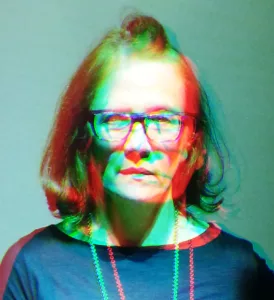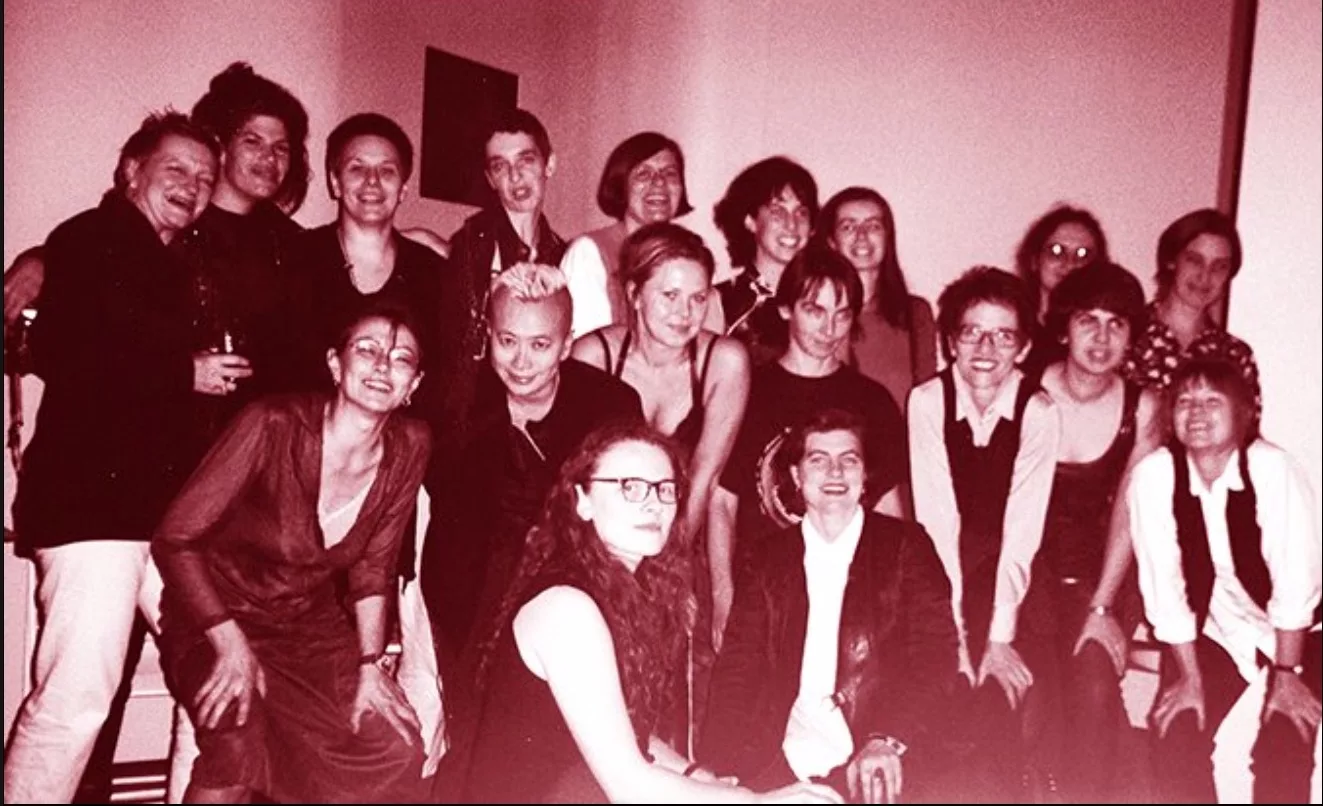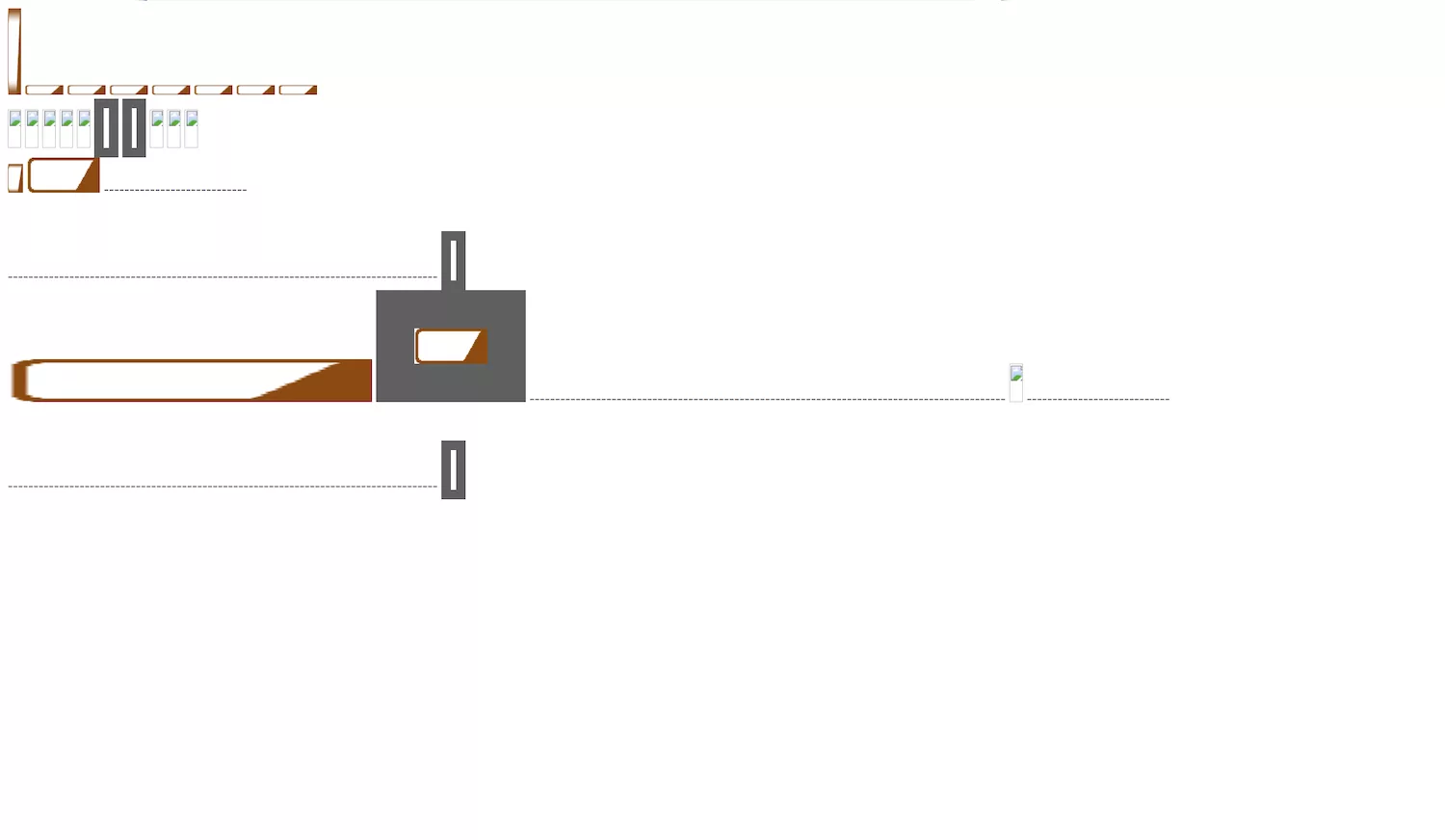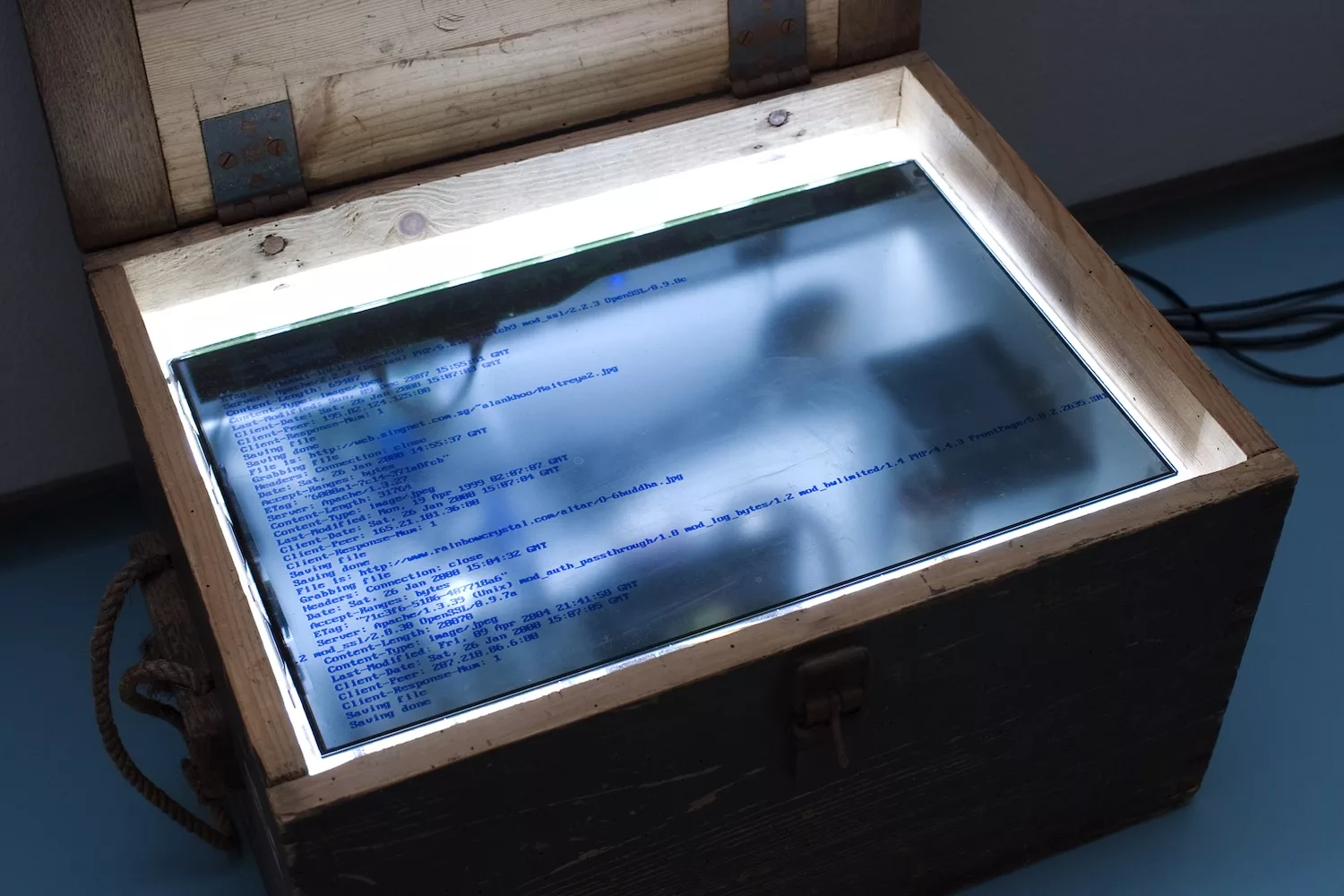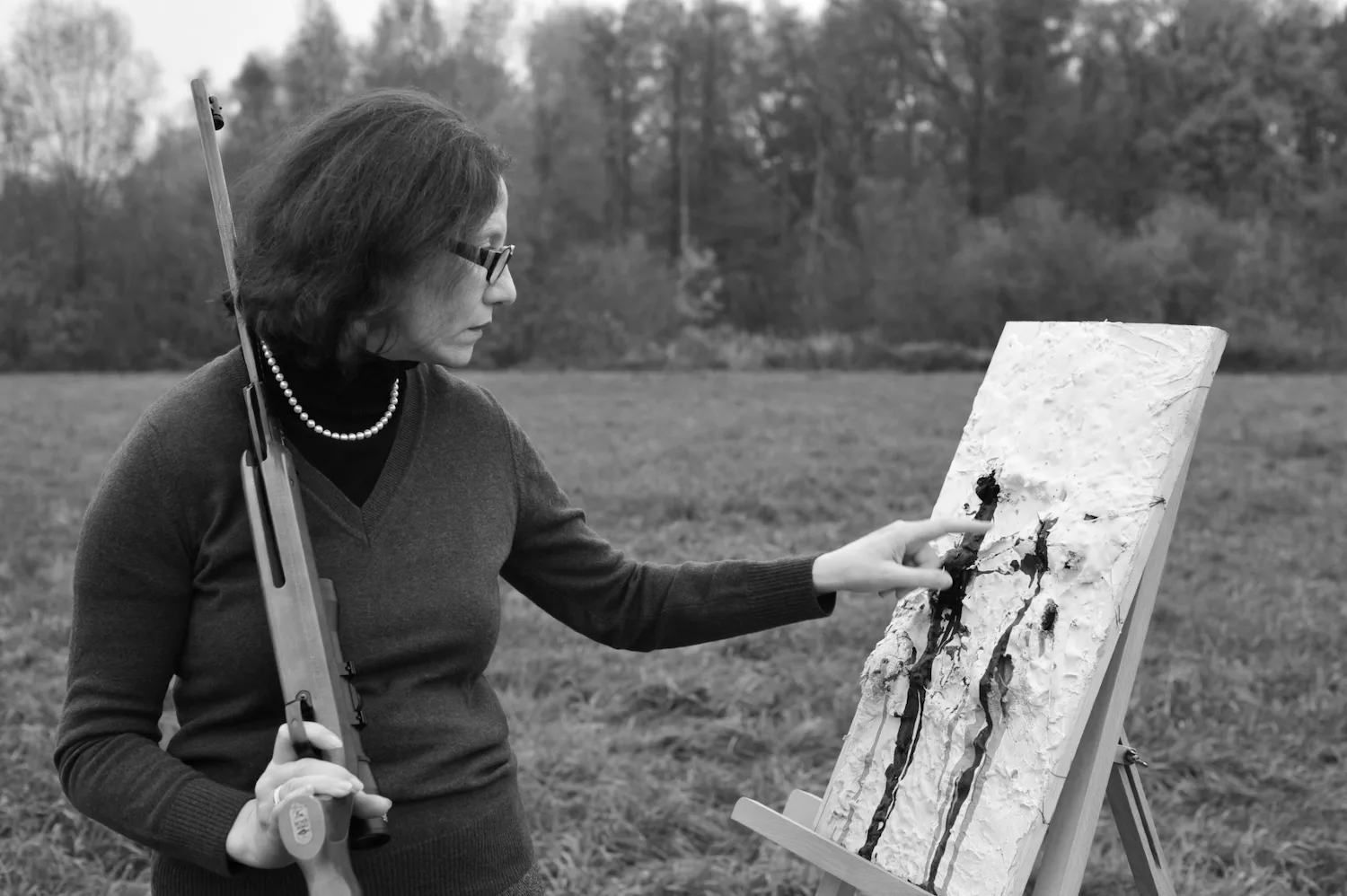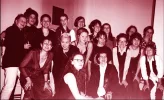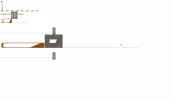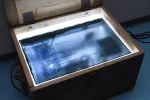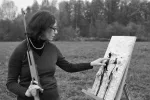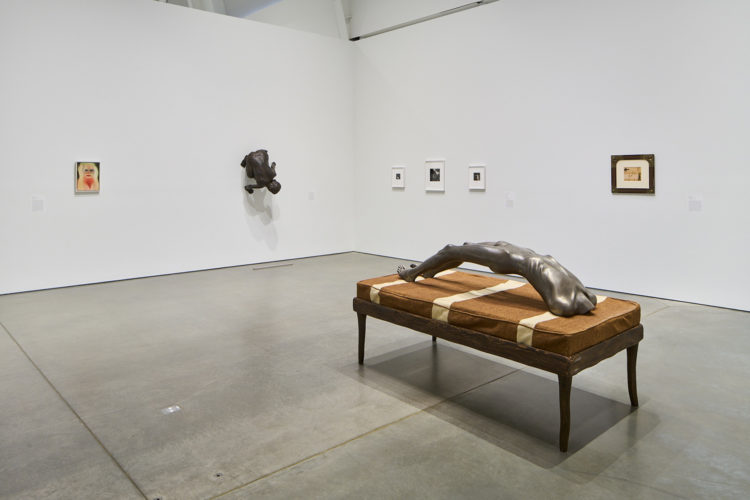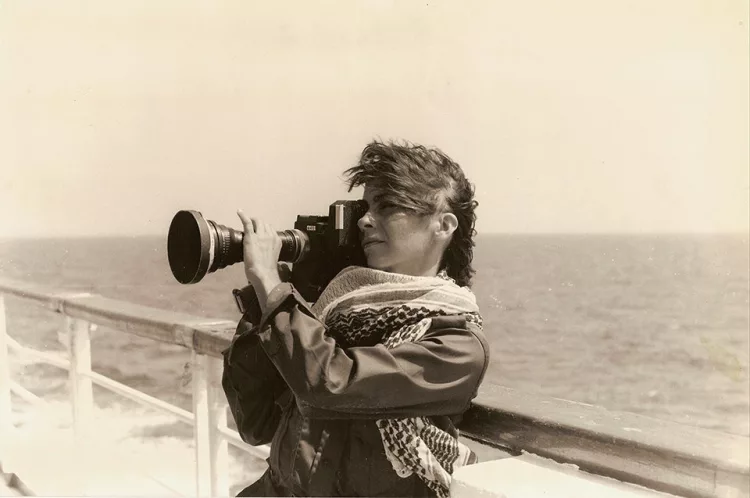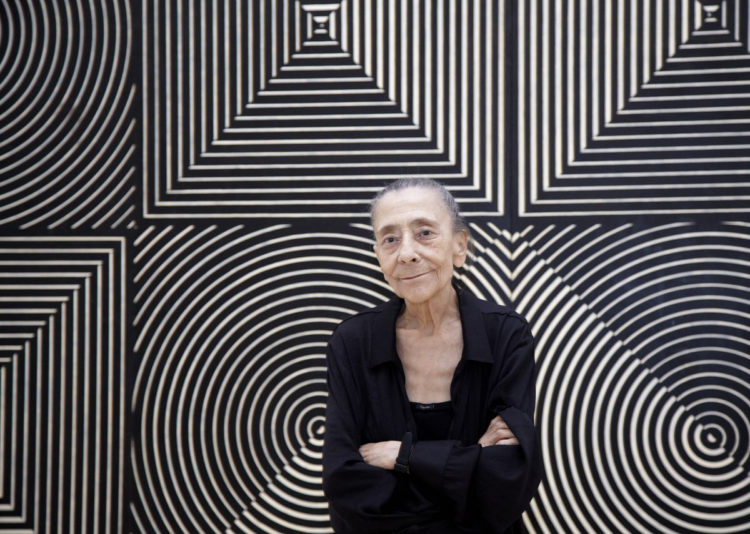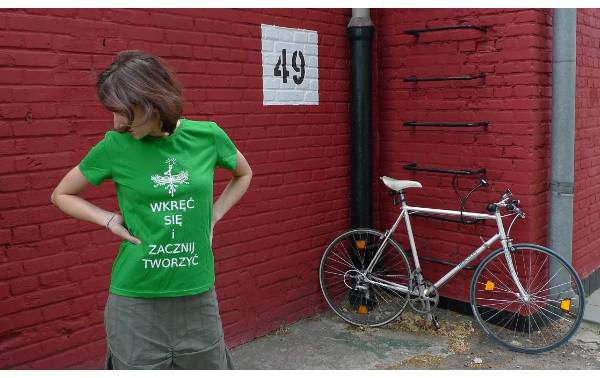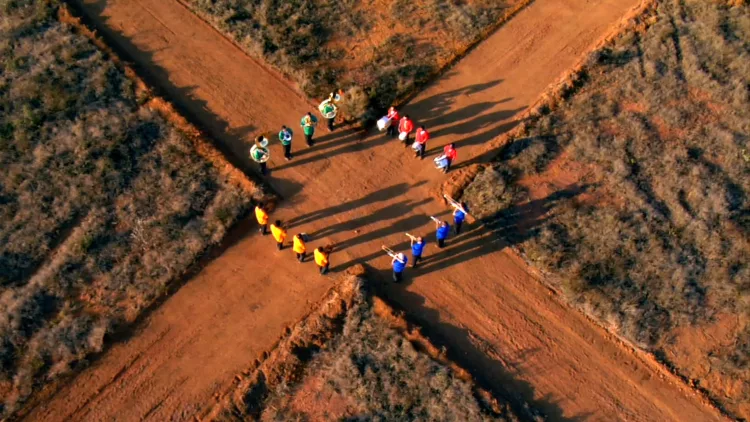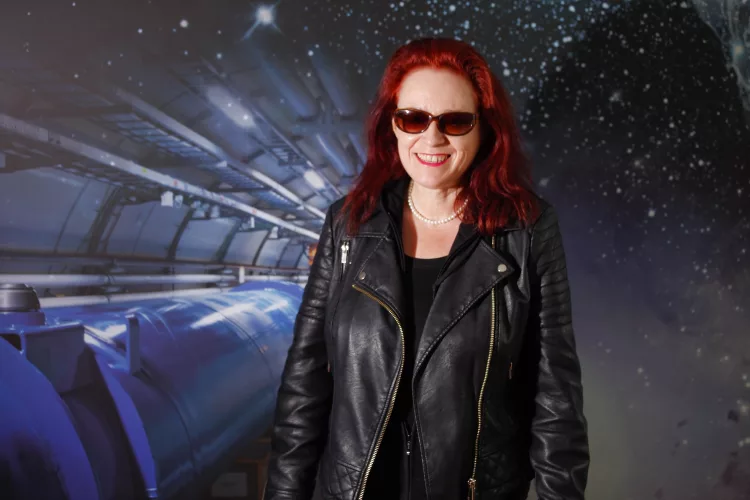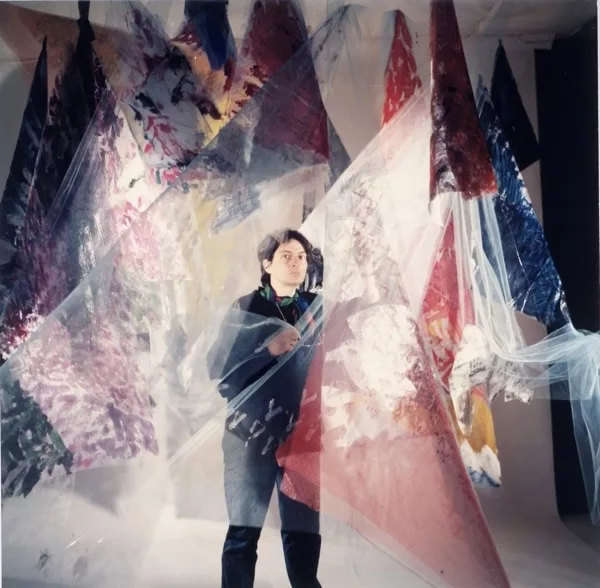Sollfrank, Cornelia, The beautiful Warriors, Technofeminist Practice in the 21st Century, Autonomedia, 2019 (accès libre)
→Himmelsbach, Sabine pour Edith-Russ-Haus für Medienkunst (ed.), expanded ORIGINAL : Cornelia Sollfrank, publié dans le cadre de l’exposition Cornelia Sollfrank : Originale und andere Fälschungen, Edith-Russ-Haus, Oldenburg, janvier – avril 2009, Ostfildern, Hatje Cantz, 2009
→Institut für moderne Kunst Nürnberg (ed.), net.art generator, Nürnberg, Verlag für Moderne Kunst Nürnberg, 2004
beyond algorithms_digital utopia, Frauenmuseum, Bonn, avril – novembre 2024
→This is not by me, Centerspace, Visual Research Centre, Duncan of Jordanstone College of Art & Design, janvier 2012
→Cornelia Sollfrank : Originale und andere Fälschungen, Edith-Russ-Haus, Oldenburg, janvier – avril 2009
Artiste allemande des médias numériques et de la culture de réseau, pionnière de l’art web, pirate informatique, cyberféministe, chercheuse et écrivaine.
Après avoir étudié la peinture à l’Académie des beaux-arts de Munich et à l’École supérieure des beaux-arts de Hambourg (1987-1994), Cornelia Sollfrank décroche également un doctorat à l’Université de Dundee au Royaume-Uni. Sa pratique artistique rejoint étroitement ses travaux académiques. Afin que les ressources disponibles dans un domaine soient utiles à d’autres, C. Sollfrank travaille aussi bien de manière indépendante qu’en collaboration avec diverses institutions. En tant qu’artiste et chercheuse, elle n’a cessé de s’intéresser à des sujets comme le droit d’auteur et la propriété intellectuelle, l’esthétique des communs numériques, la question du genre et le techno-féminisme, les infrastructures artistiques, de même que les auto-organisations (politiques) et la performativité des données. Les principes féministes sont à l’origine de sa pratique et de sa façon de penser. Elle travaille sur des projets individuels ainsi qu’au sein de groupes et de collectifs. Elle a cofondé trois groupes d’artistes féminins : frauen-und-technik (femmes et technologie), -Innen et #purplenoise.
La notoriété de C. Sollfrank s’est bâtie autour de projets comme Female Extension (1997), le net.art generator (1998–), ainsi que sur son activisme en faveur du cyberféminisme, fondant et gérant des organisations ou des structures de communication comme le Old Boys Network (1997–2001).
Female Extension était le célèbre piratage de Extension, le tout premier concours d’art web organisé par la Kunsthalle de Hambourg en 1997. À cette occasion, elle produit 127 projets individuels d’artistes féminines fictives du net, à l’aide d’un logiciel qui rassemble et recompose automatiquement des données HTML collectées sur le web. Bien que théoriquement, la probabilité que ces femmes imaginaires décrochent un prix soit plus élevée, les trois plus hautes récompenses sont attribuées à des hommes. Personne ne découvre le subterfuge avant que C. Sollfrank elle-même le révèle plus tard dans un communiqué de presse.
Programme informatique qui recueille et assemble des contenus Internet pour en créer de nouveaux, le net.art generator s’inscrit dans le prolongement de Female Extension. Depuis 1997, cinq différentes versions, de nag_01 à nag_05, furent réalisées avec la collaboration de sept programmateurs. Les générateurs fonctionnent différemment selon qu’ils sont axés plutôt texte ou image. Malheureusement, seule la version nag_05 est encore disponible aujourd’hui, car au fil du temps, les moteurs de recherche ont limité l’accès libre et gratuit aux résultats de recherche. Les œuvres ainsi générées sont stockées en ligne, et seules les productions récentes sont encore téléchargeables. Avec net.art generator, C. Sollfrank teste de nouvelles formes de droits d’auteur et déconstruit le mythe prévalent du génie et de l’originalité. Son travail soulève des questions fondamentales sur la nature de l’art à l’ère du numérique, sur le « matériau » (la source) du média numérique et sur la conservation et la restauration d’œuvres utilisant les nouvelles technologies. Ces questions deviennent d’autant plus complexes et délicates avec l’arrivée de l’IA dans la sphère artistique. Avec son esthétique abrasive, le net.art generator anticipe déjà cette évolution à venir.
Parmi les autres réalisations de C. Sollfrank figurent une série d’œuvres sur le sujet des femmes pirates informatiques (1999/2000), des reconstitutions des premières performances féministes avec Revisiting Feminist Art (2006–), et de la musique conceptuelle avec Improved Tele-vision (2001/2011). Sa conférence-performance, À la recherche de l’information perdue (2017), donne une interprétation analytique de l’affaire Wikileaks et Julian Assange. I am not a local girl (2019) est une vue poétique rétrospective de ses interventions culturelles-politiques à Hambourg entre 1997 et 2005.
Une notice réalisée dans le cadre du programme “Vivre avec deux cerveaux : Artistes femmes dans les nouveaux médias, années 1960 -1990”
© Archives of Women Artists, Research and Exhibitions, 2025


